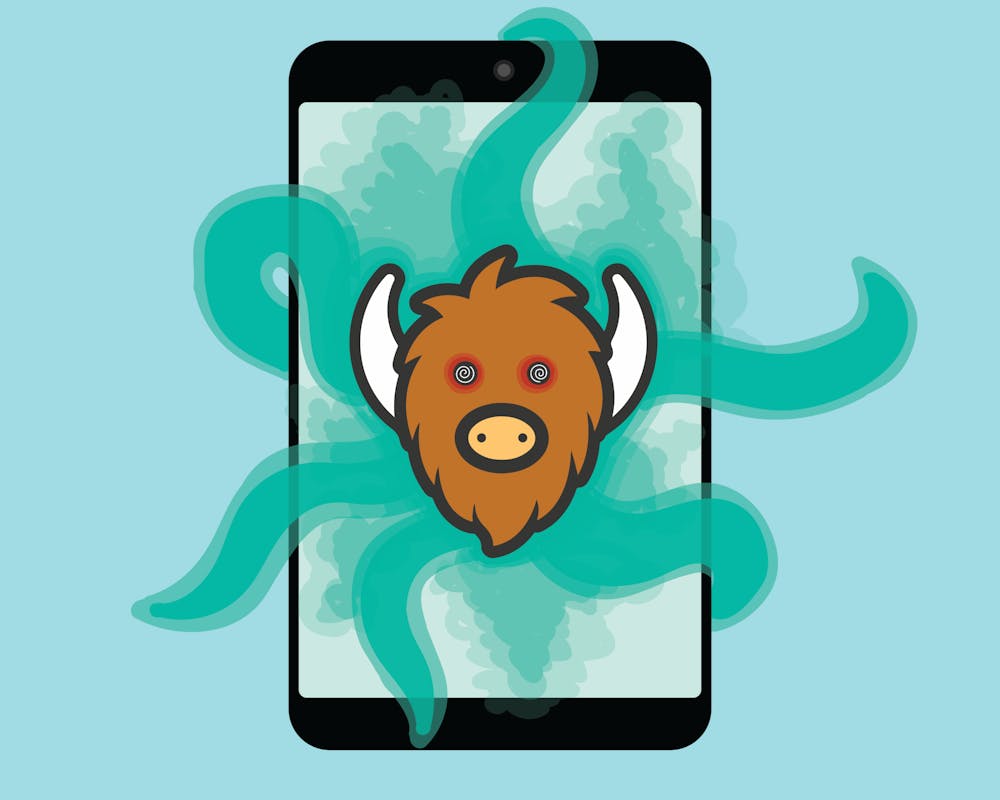Miami in 2013 looked a lot different than it does now; you’d see a lot more chevron, and hear a lot more of Lorde’s “Royals.” Not to pull comparisons, but seriously, Oxford – you’re lacking hard.
Another cultural footnote from the year of the Harlem Shake – the launch of Yik Yak, a social media platform designed to connect people anonymously with other nearby users.
Users can post messages anonymously on the app and are voted on by other users based on its content.
Despite gaining internet cult status in 2013 and 2014, the app came under fire for its lack of response to discriminatory speech posted on the platform.
In 2014, Miami students used Yik Yak to criticize the Center for Diversity and Inclusion, calling the space an “anti-white room,” as well targeting students of color on campus.
“Been in there once and everyone stared me out. Such a waste for the 6% that go here,” One anonymous user wrote of the CSDI.
Both university and Yik Yak administrators failed to trace the messages back to a specific user. To date, no one has been tied to the comment.
By 2017, Yik Yak had faded into social irrelevancy, and the app closed its doors for good. It seemed that we had all yikked our last yak.
Until now.
On Aug. 15, Yik Yak announced via their website that the app would be returning for iOS and Android download.
“The yak is finally back,” the website post reads.
But the new Yik Yak is not the free-for-all platform that it used to be. Users can now report posts that violate the site’s community guidelines and cannot name individuals outside of public figures.
Enjoy what you're reading?
Signup for our newsletter
Some users, however, are already finding ways around this rule.
Sam Warnecke, a sophomore political science major, was scrolling through Yik Yak when he found a post calling him out – by name.
“Fuck Sam from Phi Delt,” the anonymous post read.
After reaching out to mutual friends, Warnecke was able to confirm the post had been aimed at him. Though not alarmed by the post, Warnecke said the ability to target people specifically poses major safety concerns.
“I know who wrote it, and I know that they’re just trying to get under my skin,” Warnecke said. “So in that sense, I was able to laugh about it with my friends. But the fact that they were able to mention me so specifically isn’t good.”
Though he reported the post, it has yet to be taken down. Currently, the post has 34 upvotes.
“34 people saw someone telling me to fuck off and thought, ‘Yeah, I support that,’” Warnecke said. “That’s probably the worst part.”
Some students respect the app’s ability to connect strangers within the Miami community. Karsen Davidson, a sophomore strategic communication major, thinks Yik Yak provides a safe platform for students to express themselves.
“I think it’s really cool that there’s such a sense of community [on Yik Yak],” Davidson said. “To see complete strangers get to share inside jokes with each other is a unique opportunity.”
While Davidson doesn’t post to the site frequently, he does appreciate the safety the site provides to posters, with the anonymous format giving many the courage to speak up about things that might otherwise go unnoticed.
“To have a platform that includes essentially the entire student body, and the ability to say whatever you want anonymously – that’s a pretty powerful tool,” Davidson said. “When used the right way, I think a lot of good can be done with that.”
So far, Yik Yak has managed to return to its place of internet stardom, currently sitting at #12 on the top chart for social networking apps on the iOS App Store. Whether or not the app will stay relevant in the long term, however, remains to be seen.
Katie Szekely, a sophomore journalism major, doesn’t have much hope for the platform.
“I think Yik Yak had its moment for two weeks or so,” Szeleky said. “But people are already kind of over it. I just deleted the app yesterday.”




